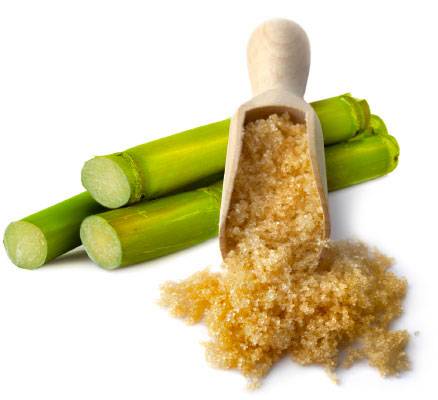A Thorough Summary of the Health And Wellness and Economic Ramifications of Walking Cane Sugar Processing on Regional Areas
Walking cane sugar handling plays a pivotal role in forming the economic landscape of neighborhood neighborhoods, providing employment chances and stimulating secondary markets. The health ramifications associated with high sugar usage can not be forgotten, as they contribute to increasing prices of weight problems and diabetes mellitus.
Financial Advantages of Walking Stick Sugar Handling
Cane sugar handling offers significant economic advantages that prolong past the immediate farming industry. The cultivation and processing of sugarcane create many job chances, from farming to production and circulation. This employment generation not just supports local economic climates however additionally fosters neighborhood growth by supplying steady income resources for family members.
In addition, the sugar sector boosts ancillary services, including transportation, equipment supply, and packaging services (Cane Sugar Processing). As these sectors grow, they add to a more robust economic structure, enhancing general community durability. The export potential of refined walking cane sugar better intensifies economic advantages, placing regions as competitive gamers in global markets
Investment in modern processing facilities can cause enhanced efficiency and performance, therefore decreasing waste and optimizing resource use. This shift not just profits the regional economic climate yet likewise sustains sustainability initiatives by decreasing environmental effects.
In addition, the revenue generated from walking cane sugar handling can be reinvested in regional facilities, education, and healthcare, promoting holistic community development. Generally, the economic benefits of walking cane sugar handling are diverse, supplying a foundation for sustaining success in farming regions.
Health And Wellness Dangers Associated With Sugar Consumption
Too much sugar usage positions substantial wellness risks that call for major interest. High intake of added sugars, particularly from refined drinks and foods, has been connected to various health problems. One of one of the most important concerns is weight problems, as sweet diet regimens contribute to an enhanced calorie intake without offering vital nutrients. This excess can cause metabolic problems, including kind 2 diabetic issues, which has become significantly widespread in both children and grownups - Cane Sugar Processing.
In addition, high sugar intake is related to heart disease. Raised blood sugar degrees can result in insulin resistance, a forerunner to various heart-related concerns. Additionally, sugar can have harmful results on dental health and wellness, resulting in cavities and gum disease, as microorganisms in the mouth prosper on sugar, creating acids that erode tooth enamel.
Moreover, emerging research study suggests a prospective link in between high sugar consumption and psychological wellness problems, such as depression and stress and anxiety. As communities come to grips with these wellness dangers, it becomes important to advertise awareness and urge healthier nutritional selections. Attending to sugar intake is crucial not only for private wellness however likewise for the total wellness of neighborhood areas, emphasizing the requirement for comprehensive public health approaches.
Ecological Effects of Sugar Manufacturing
Regularly neglected in conversations about sugar's implications is the significant environmental impact of sugar manufacturing. The growing of sugarcane typically demands substantial land usage, leading to logging, loss of biodiversity, and interruption of regional environments. The conversion of forests and marshes into sugar ranches can result in habitat devastation, harmful numerous types and altering ecological equilibrium.
Moreover, sugar production is resource-intensive, consuming considerable amounts of water for irrigation. This can bring about exhaustion of neighborhood water resources, adversely influencing both agricultural practices and community access to clean water. Furthermore, making use of chemical fertilizers and pesticides in sugarcane farming can contribute to soil degradation and water contamination, as runoff from these chemicals enters nearby rivers and lakes, affecting aquatic life and human wellness.
The environmental footprint expands to the processing stage, where energy consumption and waste generation additional worsen environmental problems. Air air pollution from melting sugarcane fields, in addition to greenhouse gas exhausts, add to environment modification. Thus, the ecological effects of sugar manufacturing warrant severe factor to consider, prompting stakeholders to embrace even more lasting practices to minimize these unfavorable effects on neighborhood environments and areas.
Work Creation and Community Advancement
The ecological challenges presented by sugar manufacturing are typically counterbalanced by its capacity for economic benefits, particularly in work development and neighborhood growth. The walking stick sugar sector acts as a significant resource of employment in many country locations, supplying jobs across numerous skill degrees, from agricultural labor to handling and distribution functions. This work not only supports specific family members yet also contributes to the general financial vigor of regional areas.
Furthermore, the facility of sugar processing facilities boosts secondary companies, such as transport solutions, tools supply, and upkeep suppliers. As these businesses grow, they develop extra jobs and bolster neighborhood economies. The income generated from the sugar industry likewise brings about enhanced tax revenues, which can be reinvested right into neighborhood solutions this contact form such as education, health care, and framework growth.
Additionally, the sugar sector commonly takes part in community development campaigns, such as sustaining regional colleges and wellness programs, thus enhancing the top quality of life for homeowners. By fostering solid neighborhood ties and promoting financial development, the cane sugar processing field plays a vital role in uplifting local populaces, making it a crucial component of lasting development methods in sugar-producing regions.
Harmonizing Health and Economic Growth
In navigating the complexities of walking cane sugar handling, a crucial challenge hinges on balancing health and wellness considerations with financial growth. The sugar industry considerably adds to regional economic situations by creating jobs, boosting relevant industries, and enhancing tax obligation incomes. Nevertheless, the health implications linked with excessive sugar consumption can bring about chronic diseases such as weight problems, diabetes mellitus, and cardiovascular concerns, which can concern public health and wellness systems and decrease workforce efficiency.

Moreover, governing structures can play website here an essential duty in guiding sector techniques towards even more health-conscious and sustainable methods. By fostering collaboration in between government bodies, wellness organizations, and the sugar market, communities can browse the dichotomy of health and wellness and economic development, making certain that the advantages of walking stick sugar processing are equitably shared while prioritizing public health and wellness.
Verdict
To conclude, the processing of cane sugar presents both substantial economic advantages and significant wellness threats for regional communities. While it fosters work development and promotes local advancement, the associated health concerns, specifically relating to excessive weight and diabetic issues, require a cautious balancing act. By advertising responsible consumption and investing in area education and sustainable practices, it is possible to maximize economic benefits while decreasing adverse health and wellness impacts, consequently guaranteeing a much healthier future for regional populations.
Additionally, sugar can have damaging impacts on dental health, resulting in cavities and periodontal condition, as microorganisms in the mouth grow on sugar, generating acids that erode tooth enamel.
Addressing sugar intake is critical not only for individual wellness however also for the total well-being visit of regional communities, emphasizing the need for comprehensive public health approaches.
Frequently ignored in conversations concerning sugar's effects is the substantial ecological influence of sugar production. The wellness implications connected with excessive sugar intake can lead to persistent conditions such as weight problems, diabetes, and cardio issues, which can problem public health and wellness systems and reduce labor force performance.

Comments on “Effective Cane Sugar Processing: Making Best Use Of Yield and Pureness”